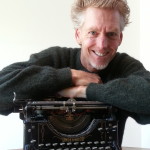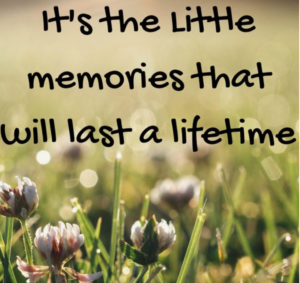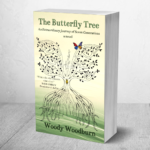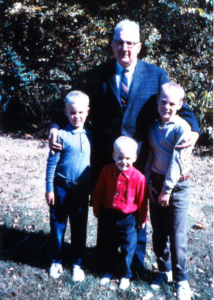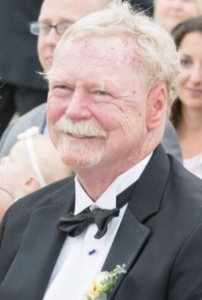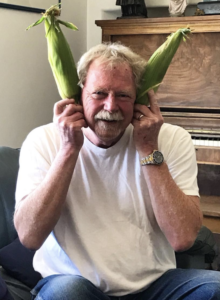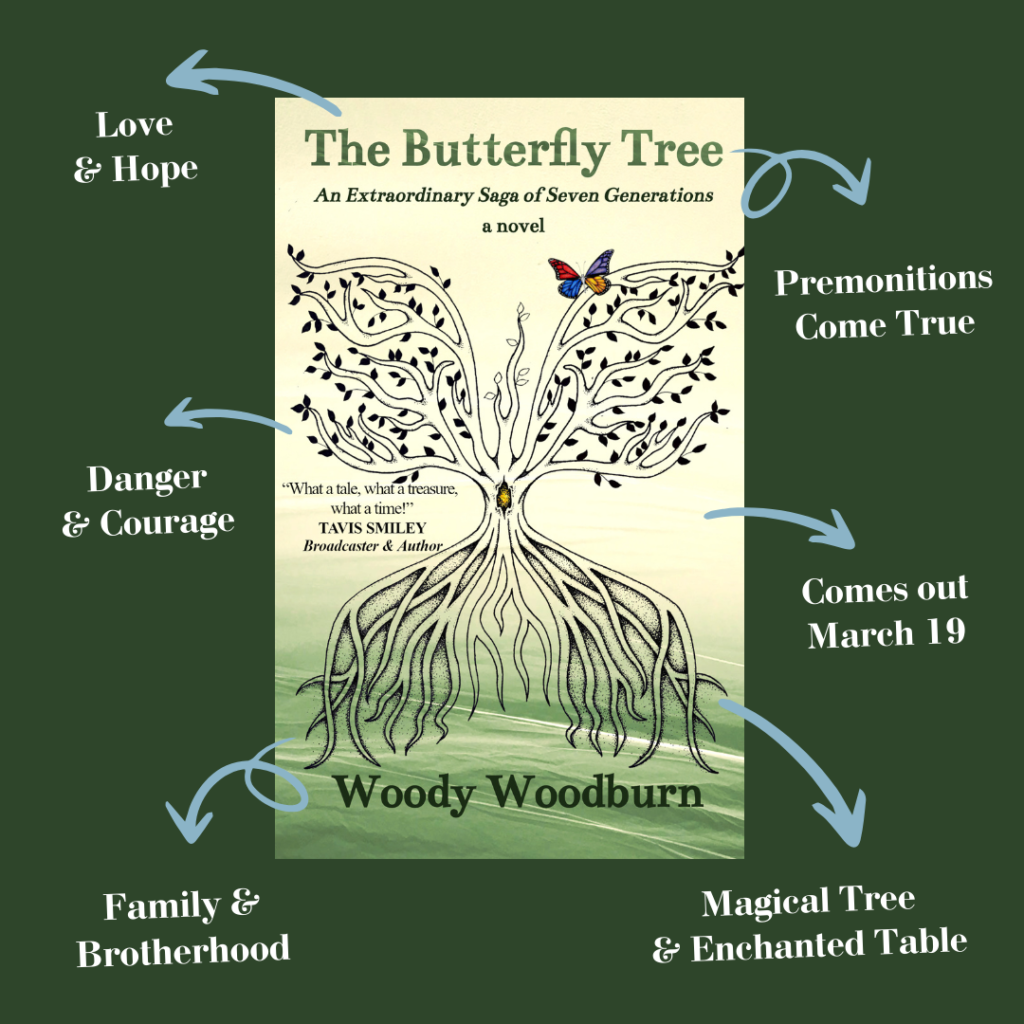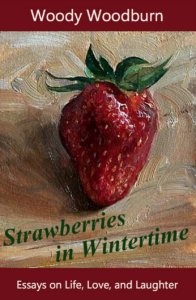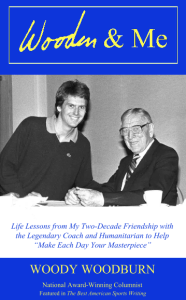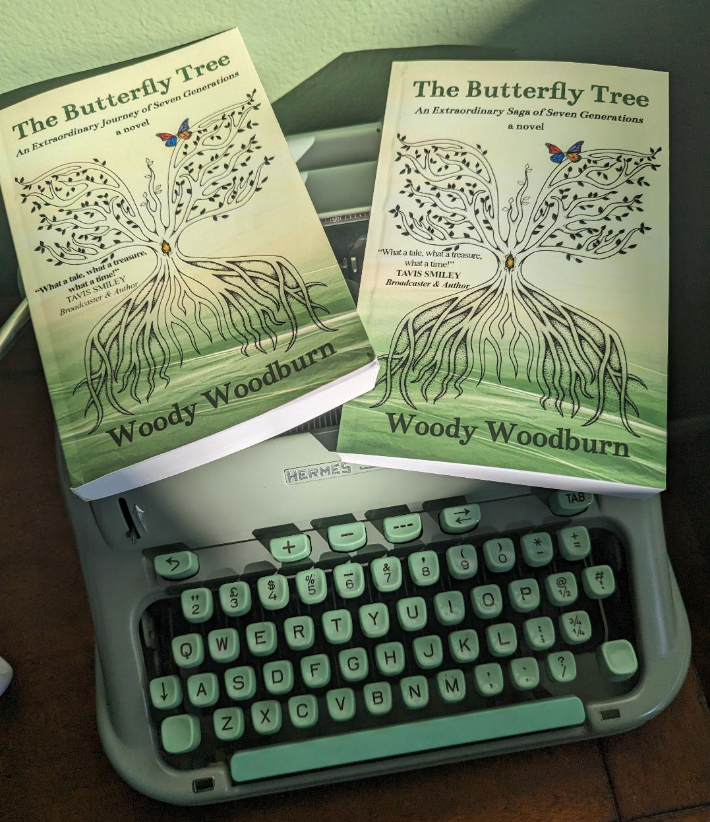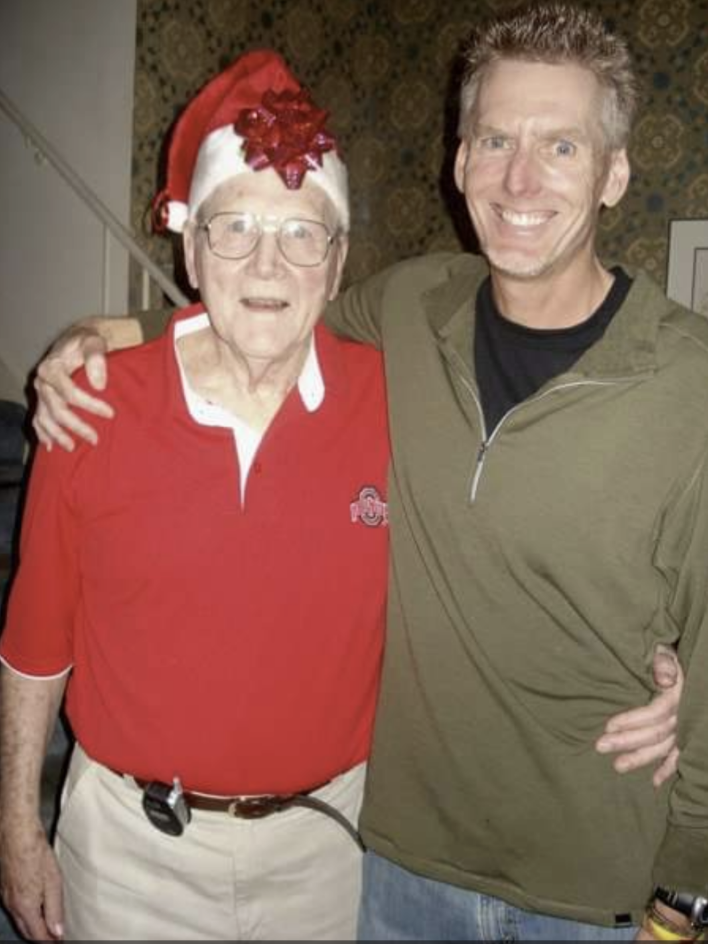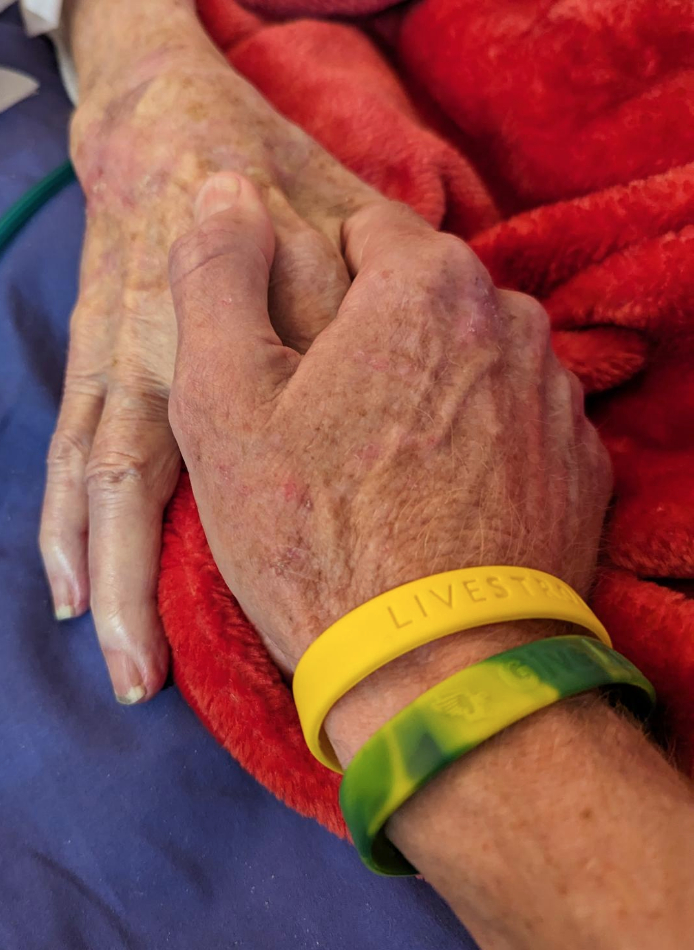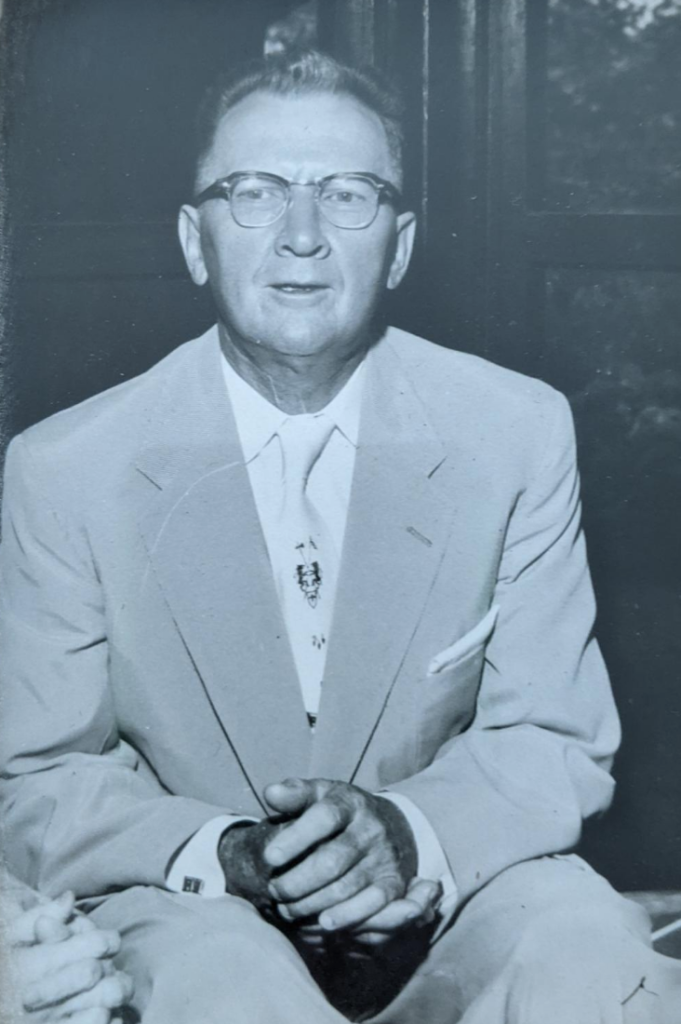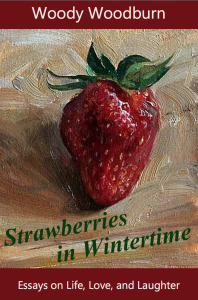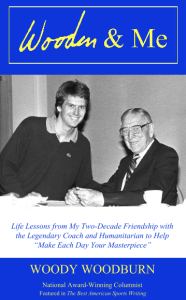Woody’s new novel “The Butterfly Tree” is available at Amazon (click here), other online retailers, and orderable at all bookshops.
*
In one of the all-time great movies, “Field of Dreams,” one of the all-time great cinematic characters, Dr. Archibald “Moonlight” Graham, recalling the one and only game he appeared in in the Major Leagues, a game that ended with him on deck without getting his first big-league at bat, makes an all-time wise observation:
“We just don’t recognize life’s most significant moments while they’re happening. Back then I thought, ‘Well, there’ll be other days.’ I didn’t realize that that was the only day.”
Yes, hindsight often affords the clarity to see that a seemingly common day was an “only day” that sparkled like midnight moonlight on a mirror-smooth pond.
Indeed, seven months after my eldest brother passed away, with the thick fog of mourning slowly burning away by the sunshine of warm memories, I realize the bright rays that are dearest to me are not the big moments – not graduation days or birthdays or weddings, even when I was his best man.
“Cultivate the habit of being grateful for every good thing that comes to you, and to give thanks continuously,” Ralph Waldo Emerson wisely wrote. “Write it on your heart that every day is the best day in the year and this time, like all times, is a very good one, if we but know what to do with it.”
The best moments, the most significant memories with Jimmy, were summer days swimming in a rural pond and nights catching fireflies; him teaching me to ride a two-wheeler and drive a stick shift; playing Euchre and laughing, playing board games and laughing, playing pranks on Mom and laughing; shooting pool and throwing darts and racing slot cars and HO trains, all in our basement; and so on, the ordinary coming into focus across time as special; halcyon day after day being an “only day.”
With this in mind, I recently wrote the following day in my heart, an ordinary day that even down the road I cannot imagine looking back at as being a day of significance, yet thanks to an Emerson-ian frame of mind it was a “very good one.”
The day started with a banana that was, to my taste, perfectly in the ripeness sweet spot – not a little too green and firm and slightly bitter as the day before; not a tad too brown and soft as would be the case tomorrow.
Next, at the keyboard, words flowed from my mind to my fingertips to the screen as effortlessly as water down a swift stream. Later, on my afternoon run, the miles flowed as easily as the typed words had and running an errand soon thereafter my car flowed through traffic like a flying magic carpet.
After initially just missing a left-turn green arrow, I altered my route home and went straight ahead when the red light turned green…
… and proceeded to make every single traffic signal, 17 greens in all, in a row, impossibly. (I counted the lights the next time I drove the route, faring much worse.)
Admittedly, twice I gamed the situation a wee bit by tilting the pinball machine, so to speak, slowing down noticeably so as to still be rolling along when a red light in the distance turned green by the time I reached it. All the same, it was remarkable and put a smile in my heart.
The rest of my day was similar, not because of big things worth recounting here, but rather, I suspect, simply because I was in the frame of mind to appreciate the moonlight shining upon small things.
* * *
Essay copyrights Woody Woodburn
Woody’s new novel “The Butterfly Tree” is now available in paperback and eBook at Amazon (click here), other online bookstores, and is orderable at all bookshops.
*
Woody writes a weekly column for The Ventura County Star and can be contacted at WoodyWriter@gmail.com. Follow him on Twitter and Instagram at @woodywoodburn.

